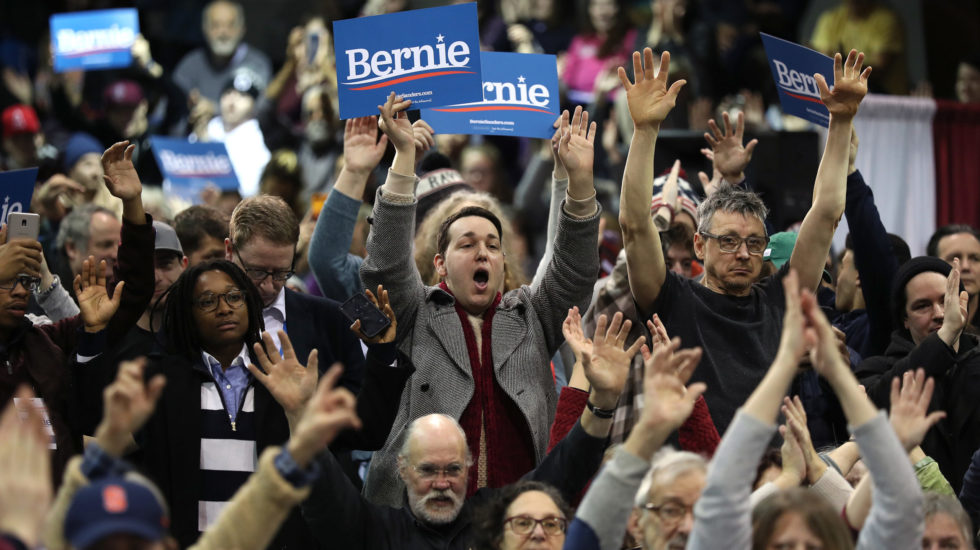Sen. Bernie Sanders of Vermont appears to have a lock on tomorrow’s Democratic primary in neighboring New Hampshire. And polls show Pete Buttigieg, the former mayor from Indiana, in second place following his narrow victory last week in Iowa.
But in the ever-growing diversity of Americans nationwide, New Hampshire and Iowa are racial and ethnic outliers, with overwhelmingly white populations.
So political prognosticators must focus further down the primary road to assess where Campaign 2020 is headed.
Not too far down the road, though: black and Hispanic voters will be major factors in Nevada and South Carolina later this month and on Super Tuesday, looming on March 3rd; a few days later, the Democrats’ race for the nomination could be a done deal.
Mike Bloomberg will have something to say about that. He chose to ignore the first four contests and aim his billions at the populous states dominating the Super Tuesday field: Texas, North Carolina, Massachusetts, Virginia and — especially — California, with more than 400 pledged delegates to the Democratic National Convention up for grabs.
Californians are already voting.
“Even as New Hampshire gets its traditional place in the spotlight Tuesday, more than 15.5 million early ballots were mailed out to registered California voters last week,” notes Politico.
While Sanders maintains a well-established lead in the latest California polls, Politico says, “Bloomberg appears ready to seize on the confusion and campaign shakeups that emerged from Iowa, and [former vice president Joe] Biden’s under-performance.”
Bloomberg and his team are spending heavily in the state — $13 million in advertising in little over a month. And the former New York City mayor has received dozens of endorsements while giving Californians a rare look at what Politico calls “retail presidential campaigning up close” — that is, personal appearances with handshakes, selfies, buttons and appeals for early voting.
Bloomberg’s ad campaign presents him as the most “presidential” candidate in the race — especially when compared with Trump.
Sanders, too, has been personally active in California (one member of his team says he’s made more appearances there than any other candidate), while Buttigieg has raised the most money: more than $9 million so far, with additional fundraisers planned this month in the Bay Area and Silicon Valley.
As the campaign rolls on, the candidates are becoming more combative against each other and, in Sanders’ case, against the Democratic National Committee, for the way its rules supposedly disadvantage the Vermont senator in televised debates.
“The brew of resentment and anxiety represents a sharp turn for a presidential primary race that began last year with a historically diverse field and intense optimism that Democrats could harness the same energy that helped them win big in 2018,” says the Washington Post.
“Now party unity is breaking down just as voters express rising concerns that none of the remaining candidates is fully equipped to take on an incumbent president who regularly scoffs at political norms of civility and accuracy.”
If Sanders or Buttigieg were able to “fully unite either liberals or moderates behind their campaigns,” says the New York Times, a long, acrimonious primary campaign might be avoided. But that seems unlikely: Sanders has Warren to his left and Buttigieg faces moderates like Biden and Sen. Amy Klobuchar (D-MN), “who has drawn fresh interest from many voters since a strong debate performance on Friday night.”
The situation offers a bonanza of opportunities for pollsters.
One online survey of likely New Hampshire primary voters that found 62% would rather see a giant meteor wipe out all life on Earth than endure four more years of Trump in the White House. That tongue-in-cheek question was part of a UMass-Lowell poll showing Sanders with a narrow over Biden and Sen. Elizabeth Warren (D-MA) in Tuesday’s primary.
One possible insight into the future of the campaign comes from a post on Twitter looking back at the long-delayed results from Iowa, in counties that voted for Obama in 2008 and ’12, and for Trump in 2016. From that standpoint, Buttigieg was the clear winner.



